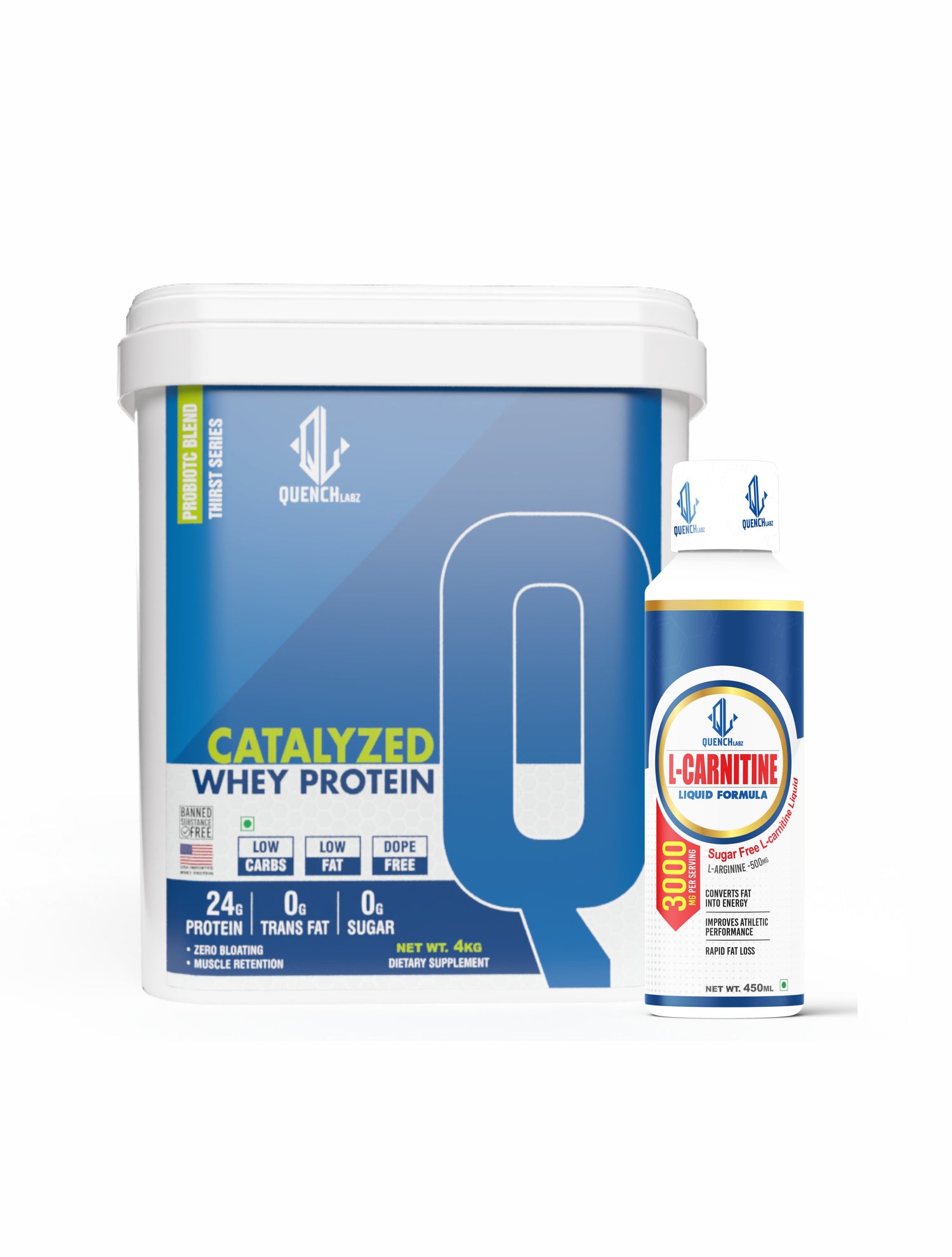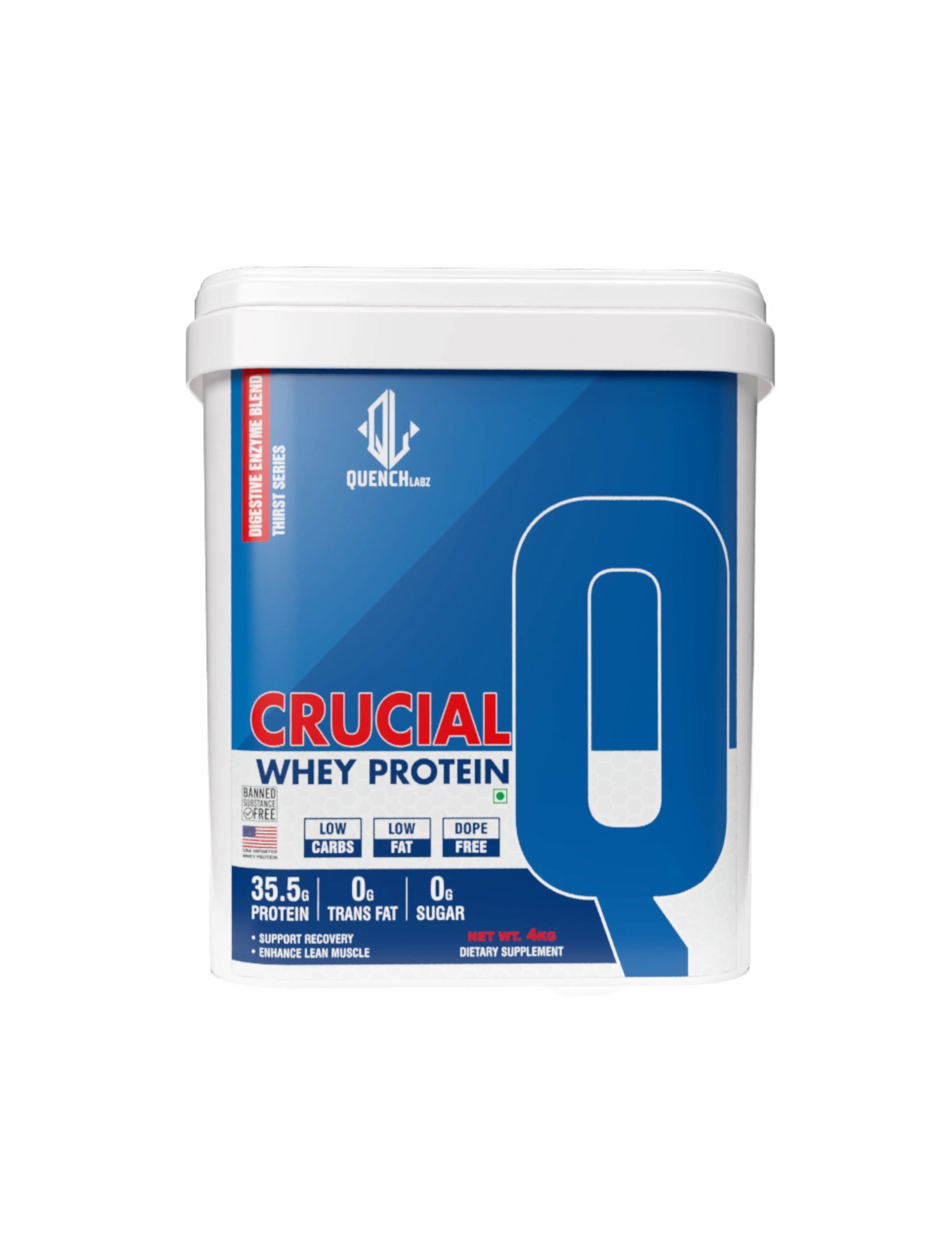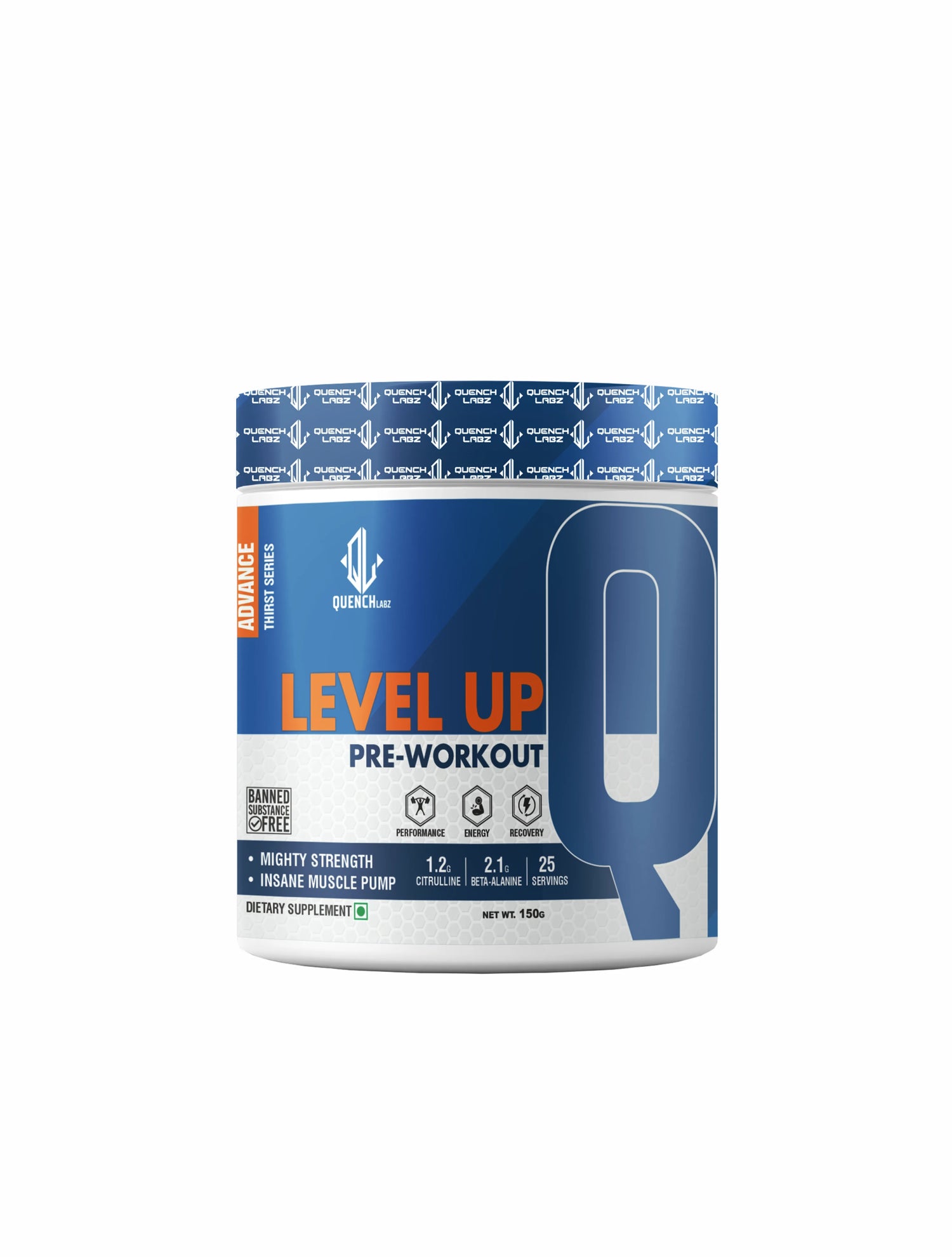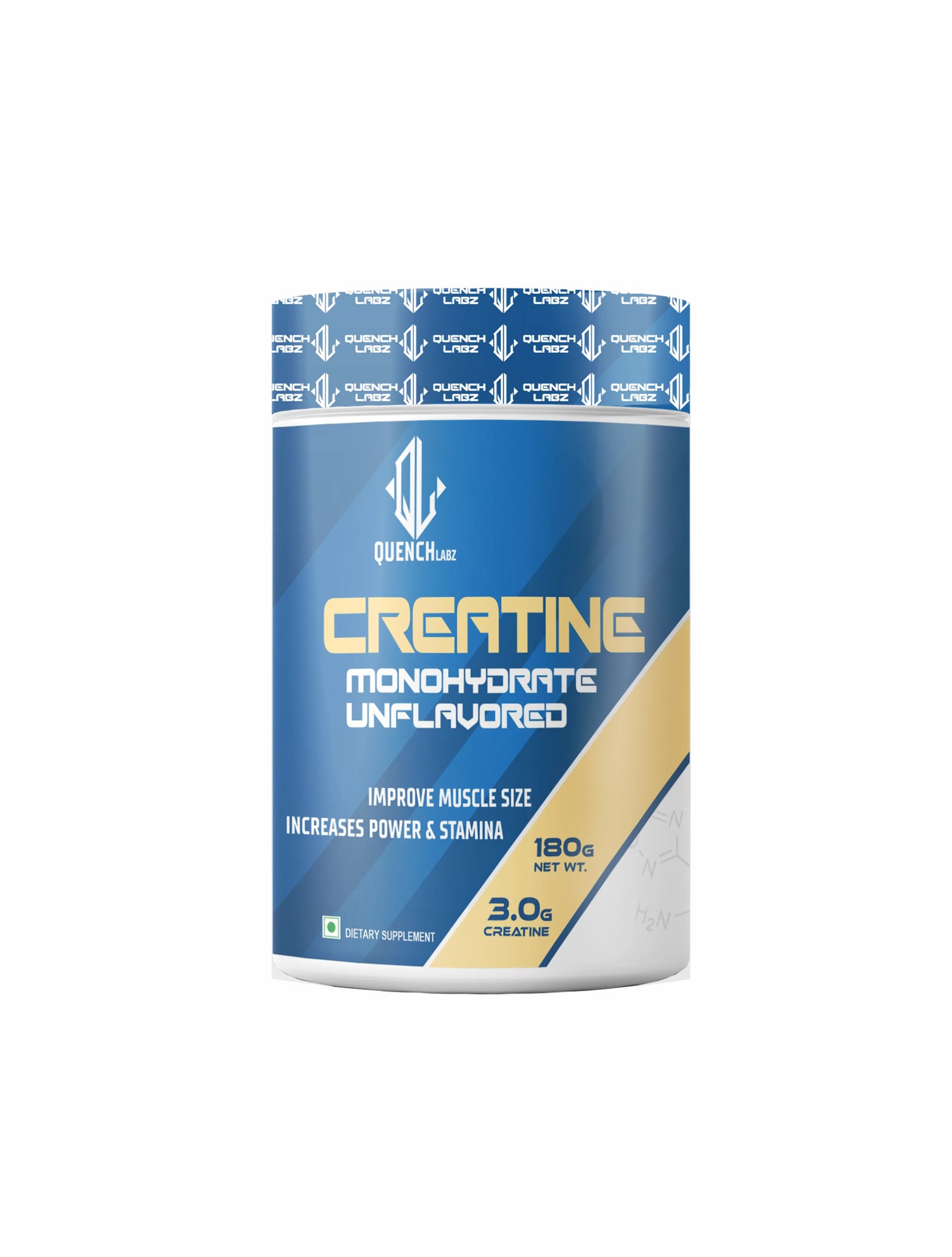When it comes to whey protein, most people think of it as a supplement to boost muscle growth and recovery. However, the benefits of whey protein powder extend far beyond just building muscle. Packed with essential amino acids and bioactive compounds, whey protein offers a variety of health advantages that support overall well-being. In this blog, we’ll explore the top 10 health benefits of whey protein that go beyond muscle building, making it a powerful addition to anyone's diet.
What Is Whey Protein?
Whey protein is a high-quality protein derived from milk during the cheese-making process. It’s considered a complete protein, meaning it contains all nine essential amino acids that the body cannot produce on its own. These amino acids are crucial for a variety of bodily functions, including muscle repair, immune function, and energy production.
Though whey protein powder is often used by athletes and bodybuilders to support muscle growth and recovery, it provides several other benefits that can contribute to better health, weight management, and more.
Top 10 Health Benefits of Whey Protein
1. Supports Weight Loss by Reducing Appetite
If you’re looking to shed some pounds, whey protein can help by reducing your appetite. The high protein content in whey helps keep you feeling full for longer, curbing cravings and preventing overeating. Studies show that adding whey protein supplements to your diet may lead to a reduction in calorie intake throughout the day.
How Whey Protein Helps in Weight Loss:
-
Increases satiety: Whey protein helps you feel fuller for longer, reducing the likelihood of snacking between meals.
-
Supports fat loss: Protein can promote fat burning while preserving lean muscle mass.
2. Promotes Immune System Health
Whey protein contains several important bioactive compounds such as immunoglobulins and lactoferrin that support immune function. These compounds help protect the body from harmful pathogens and strengthen the body’s defense system. By adding whey protein to your daily routine, you can help enhance your body's ability to fight off infections.
Whey Protein and Immunity:
-
Immunoglobulins in whey help neutralize pathogens.
-
Lactoferrin has antibacterial properties that promote immune health.
3. Aids in Managing Type 2 Diabetes
For individuals with type 2 diabetes, whey protein may help improve insulin sensitivity and regulate blood sugar levels. Research has shown that whey protein can help reduce blood sugar spikes after meals, making it an excellent supplement for managing diabetes.
Whey Protein for Blood Sugar Management:
-
Helps improve insulin sensitivity.
-
Reduces post-meal blood sugar spikes.
4. Reduces Inflammation
Chronic inflammation is linked to various health conditions, including heart disease and arthritis. Whey protein contains amino acids such as cysteine, which are known to reduce inflammation in the body. This can be particularly helpful for individuals suffering from inflammatory conditions or those looking to improve overall health.
Whey Protein and Inflammation:
-
Anti-inflammatory properties help reduce the risk of chronic diseases.
-
Promotes better joint health and recovery.
5. Improves Heart Health
Consuming whey protein regularly may support heart health by improving cholesterol levels. Some studies suggest that whey protein can increase HDL (good) cholesterol while decreasing LDL (bad) cholesterol, which can reduce the risk of cardiovascular disease.
Whey Protein for a Healthy Heart:
-
Increases HDL cholesterol levels.
-
Helps regulate blood pressure.
6. Enhances Digestive Health
Whey protein is rich in lactoferrin and immunoglobulins, which promote the growth of healthy gut bacteria. This helps improve digestion and nutrient absorption. Additionally, some forms of whey protein, like whey protein isolate, are easier on the digestive system, making them suitable for people with digestive issues.
How Whey Protein Supports Digestion:
-
Improves gut health by promoting beneficial bacteria.
-
Reduces symptoms of digestive discomfort.
7. Strengthens Bones
While calcium is the most well-known nutrient for bone health, whey protein can also support strong bones. Some studies suggest that the amino acids in whey protein can enhance the absorption of calcium and other minerals essential for bone strength.
Whey Protein and Bone Health:
-
Supports calcium absorption.
-
Promotes bone density and strength.
8. Improves Liver Function
For individuals with liver conditions, whey protein may offer protection and improve liver function. Research indicates that whey protein supplementation can help reduce liver fat, which may be beneficial for people with fatty liver disease.
Whey Protein for Liver Health:
-
Reduces liver fat.
-
Helps in the recovery and repair of liver tissue.
9. Supports Mental Health and Reduces Stress
Whey protein is rich in amino acids, such as tryptophan, which play a role in serotonin production. Serotonin is a neurotransmitter that helps regulate mood, sleep, and stress. By boosting serotonin levels, whey protein may help reduce stress and improve mental well-being.
Whey Protein and Mental Health:
-
Increases serotonin levels.
-
Helps reduce stress and promotes mental clarity.
10. Enhances Post-Workout Recovery
Of course, one of the primary benefits of whey protein is its ability to support muscle recovery after a workout. Whey protein is rich in branched-chain amino acids (BCAAs), which are crucial for muscle repair and growth. Taking whey protein post-workout can help reduce muscle soreness and accelerate recovery, allowing you to perform better in your next workout.
Whey Protein for Recovery:
-
Reduces muscle soreness and speeds up recovery.
-
Enhances muscle protein synthesis.
Conclusion: Why You Should Add Whey Protein to Your Diet
As you can see, the health benefits of whey protein extend far beyond just muscle building. From promoting immune health to improving heart function and aiding in weight loss, whey protein is a versatile supplement that supports a wide range of bodily functions. Whether you're an athlete, someone looking to improve overall health, or someone managing a specific condition, whey protein powder can be a valuable addition to your diet.
If you're ready to experience these benefits for yourself, consider buying whey protein powder from QuenchLabz, where we offer premium quality whey protein supplements designed to help you achieve your health and fitness goals.
FAQs
1. What is whey protein and how does it work?
Whey protein is a high-quality protein derived from milk during the cheese-making process. It contains all nine essential amino acids that are crucial for muscle repair, immune health, and overall body function. Whey protein is quickly absorbed by the body, making it an ideal supplement for muscle recovery and maintaining good health.
2. Can whey protein help with weight loss?
Yes! Whey protein can aid in weight loss by promoting satiety and reducing appetite. It helps keep you feeling full longer, preventing overeating and curbing unhealthy cravings. Additionally, whey protein helps maintain lean muscle mass while supporting fat loss.
3. Is whey protein good for digestion?
Whey protein is beneficial for digestive health. It contains bioactive compounds like lactoferrin and immunoglobulins that help promote healthy gut bacteria, improving digestion and nutrient absorption. Some forms, like whey protein isolate, are easier on the digestive system.
4. How does whey protein support heart health?
Regular consumption of whey protein may improve heart health by increasing HDL (good cholesterol) levels and decreasing LDL (bad cholesterol). It also helps regulate blood pressure, contributing to a healthier cardiovascular system.
5. Can whey protein boost the immune system?
Yes! Whey protein contains immunoglobulins and lactoferrin, both of which are essential for supporting a healthy immune system. These compounds help protect the body from infections and promote overall immune health.
6. What are the benefits of whey protein for people with diabetes?
Whey protein can help improve insulin sensitivity and regulate blood sugar levels in people with type 2 diabetes. It helps reduce blood sugar spikes after meals, making it a useful supplement for managing diabetes.
7. Can whey protein reduce inflammation in the body?
Yes, whey protein has anti-inflammatory properties that help reduce chronic inflammation. This can be beneficial for individuals with inflammatory conditions such as arthritis or for anyone seeking to improve overall health.
8. When is the best time to take whey protein for maximum benefits?
The best time to take whey protein is post-workout, as it helps in muscle repair and growth. You can also take it as a meal supplement or snack to support overall protein intake throughout the day.









